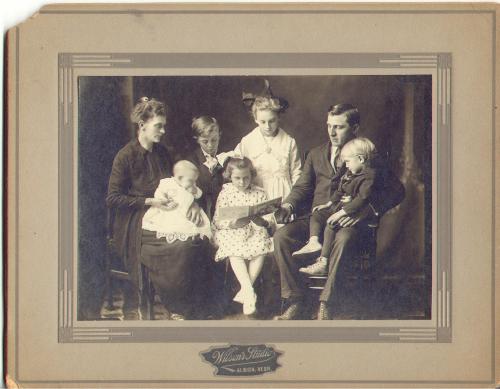Frances Itani will be participating at the 2017 Toronto Word on the Street festival

Major events tend to disturb quiet lives. And while World War I may have occurred 100 years ago, it’s effects on the occupants of small towns in North America were truly trying and emotional. That is the rich narrative that Frances Itani explores in her wonderful novel Tell.
Pages 9-10
There was no escaping the wind. Gusts blew in off the bay, gusts beat against shirts and trousers and linens pegged to the clothesline. Air pockets were trapped; sheets snapped out furiously. From inside the closed veranda at the rear of the house, Kenan Oak could not shut out the sound.
He closed the outdated newspaper he’d been reading and made an effort to align its edges. Once he folded it along the creases, he’d placed it on top of a neat and growing stack beside his chair. He had read about but had not attended the fall reception in town, nor had he attended the sports dinner or the grand ball – all of which had been held, as editor Calhoun, of the Post, had reported, “to thank Deseronto’s red-blooded manhood for its sacrifices, its heroism and is gallantry on the far-flung battlefield.”
The town had waited until late in the year for the big celebration. “Decorate! Decorate!” Calhoun had urged the town. “Decorate your lawns, decorate your homes, decorate your places of business, decorate your streets, decorate your autos – but decorate.
And people had responded, at least from what Kenan could see from his parlour window. Yes, the town had decorated, and waited until everyone was home – those who were alive to come home. The nearby city of Belleville had sent a brass band for day time events and a orchestra for evening. Kenan, who had lived in Deseronto all his life, felt far-flung indeed, having brought the battlefield home with him. Or so Tress, losing patience one day, had accused. Kenan had come back as a “walking wounded,” but he had not walked out of the house since the day he returned and set foot in it.
Itani’s works have been on my radar for a while so I was glad to be able to make time to read this book. The story deals with characters from her previous works but the fact that I hadn’t read any of those other books didn’t deter me from enjoying this book. The story felt comfortable while reading, like I was settling myself in so many communities I had experienced in my younger days. Readers are slid comfortable into the lives of the residents of Deseronto, and witness young Kenan – damaged and disfigured from the war – try to come to grips with civilian life again. His wife, Tress tries to help him regain that existence and goes often to find advice from her Aunt Maggie. But Maggie and her husband Am have their own bitter past to deal with. Readers easily gain empathy with each of the characters as their pains and emotions are carefully revealed by Itani’s well-crafted words.
Page 171-172
Maggie was impatient. She wanted to work at something, but Am was in the tower. She wanted time alone, wanted to practise her solos. She wasn’t able to sing when he was around, even if he could not be seen. No matter where he was in the apartment, she was aware. He went up and down the ladder with such regularity, she could tell when he was carrying something and when he was not. She was aware of him standing, sitting aware of his shoulder slump, his breathing, his imagined expression, his squinting to see, his sighs over whatever pain he was trying to hold in, his right hand pressed to his lower abdomen. She wondered if he had a problem with his bladder. Dandelion fluid, she said to herself. Sarsaparilla mix. One spoonful before bedtime. But she could not concoct dandelion fluid at this time of year.
She thought she would go to the bedroom to sing, but she heard footsteps above, as if he were deliberately asserting his presence. She could not free herself of the weight of him. She heard him descend the ladder, and suddenly he was in front of her She looked at his face and her body went cold. He was about to speak, but he must not speak. Maggie brushed past, went to the kitchen, busied herself at the table, turned her back. She heard his footsteps on the ladder again as he went up.
The narrative feels like many other classic stories about life in small towns but there is a bit of freshness to the plot. Itani gives us deep emotions like anguish, passion and fear like no other story I have encountered before. Readers sense the tranquility of the town and the order it has but readers are compelled to read on to find out why some of its occupants are truly unhappy and what they plan to do to regain some balance in their lives.
Pages 208-209
He hadn’t forgotten the hard fall during his first skate, and he was determined not to stumble this time. He reached the ice, tested, felt his blades scratch against the hard surface. He tried to relax, to let go, and surprised himself with a sprint that took him to the far end of the rink. He had not fallen. He had not once looked toward the wall of snow. He couldn’t stand the sight of it.
He stood still after the sprint and considered what to do next. His body would cool quickly if he stayed in one spot. A low wind was blowing in off the bay and he wanted to keep moving. He pushed off again, kept his knees bent, felt his blade carve ice, heard the sound – harsh, familiar, satisfying agins t the night silence. He tried to warm up, move faster. Tried again to let go, drop his weight, allow his legs to prove their strength. He skated the length of the rink, straight up the centre, reached the far end and almost panicked knowing hed have to turn. Then, one foot crossed over the other, right foot over left, and he executed a quick three-step on ice, the dance of the feet, naturally, smoothly, the way hed always done. One of his blades struck an uneven patch, a ridge in the ice, and he went down, but not so hard this time. He sat on his ass and laughed abruptly into the dark.
Frances Itani has told us some interesting tales in her book Tell. The plot reads like a many other beloved stories of small towns coming to grips with a new era, Itani does explore some new thoughts and emotions in a tender way. A great read and a great piece of literature.
*****
Link to HarperCollins Canada`s website for Tell
Share this:- More





